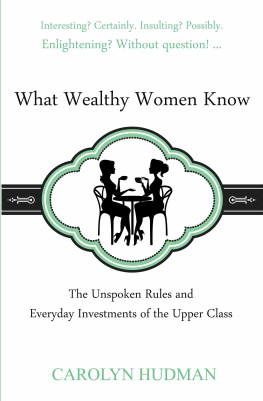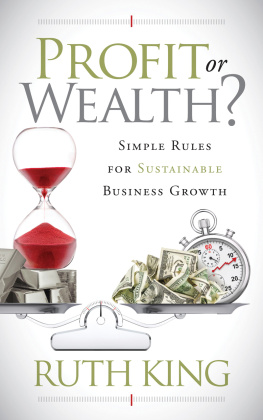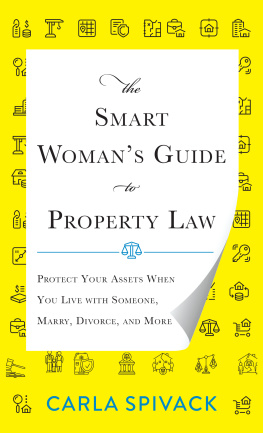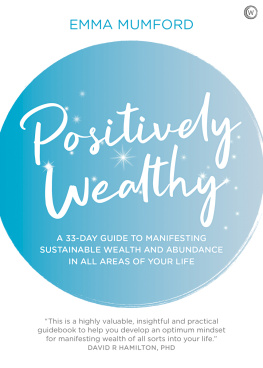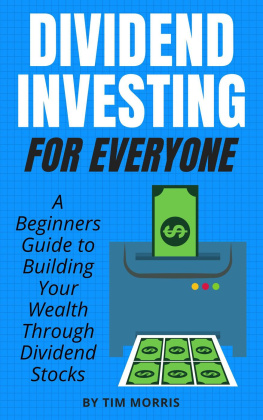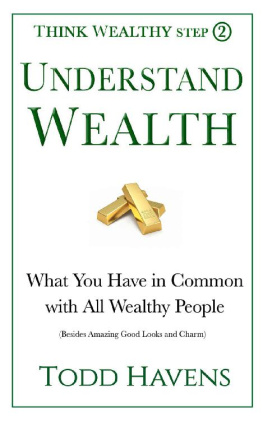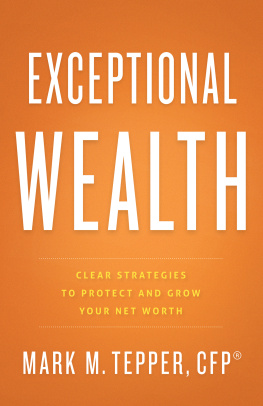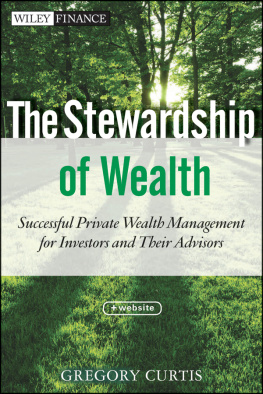What Wealthy Women Know
The Unspoken Rules and Everyday Investments of the Upper Class
CAROLYN HUDMAN
Copyright 2014 Carolyn Hudman
Published by Berkshire Ink, LLC, Frankfort, KY
All rights reserved. No part of this book may be reproduced or transmitted in any form or by any means, electronic or mechanical, including photocopying, recording, or by any information storage and retrieval system, without written permission from the publisher.
ISBN-13: 978-0692258026
ISBN-10: 0692258027
Printed in the United States of America
FIRST EDITION
My deepest gratitude to Mom, Melody, Paige, April,
Phyllis, Judy, Linda and to the many women who have
helped to shape me into the woman I am today
friends, family, even those few foes.
May God Bless Each and Every One of You!
.
CONTENTS
Authors Note | vii |
Lesson One: The Gift of the Present | |
Lesson Two: Awareness of the Unspoken Rules of Socio-Economic Class | |
Lesson Three: Invest in Economic Capital by Controlling and Increasing Your Personal Net-Worth | |
Lesson Four: Invest in Cultural Capital by Branding Your Presenting Self | |
Lesson Five: Invest in Cultural Capital by Self-Auditing Your Verbal and Non-Verbal Communication | |
Lesson 6: Invest in Academic and Human Capital through Formal Education and Life-long Learning | |
Lesson 7: Invest in Social Capital by Cultivating Social and Professional Relationships with a Diverse and Influential Set of Peers and Mentors | |
Epilogue | |
Authors Note
New Years Day holds great symbolism for me, it was the day my greatest fear snuck up on me and threatened to swallow me wholeit was the day my husband of eighteen years walked out the door and chose not come home.
Days turned into weeks, weeks turned into months, and months turned into years. I frequently felt aloneabandoned. I buried myself in work, thinking that there were very few things that could hurt me worse.
I was wrong.
Learning that he had moved on and the actual divorce hurt far worse.
My family and friends said it was the evidence I needed to move on and to heal. I would like to think there would have been a better way. That said, part of the healing process required that I thoroughly grieve the loss of the dream I envisioned for our family and build a new dream, a new normal for my daughter and I. Dreaming, however, proved very difficult without money in my bank account. In all honesty, it seemed impossible.
In the years following our separation, I faced some of my biggest life challenges. I was not only heart-broken but financially brokenjuggling the mortgage on the family acreage, preparing for our daughter to head off to college and working to pay down my own student loans.
I dont claim ignorance or blame my (now) ex-husband for the situation I had gotten myself into. I went into debt with full knowledge of what I was doing. However, it was easier to live as if nothing had changed than to admit that everything had.
When you pay the bills and the bank account registers zero, you often fail to remember that there are conditions broker than broke. But, like so many things in life, credit makes it possible.
Instead of focusing on a dream, I began to focus on fear. Fear consumed my every thought: fear that my life was falling apart, fear of bankruptcy, fear of failure after everything I had worked so hard to accomplish and the crippling fear that I could no longer trust my own judgment and would end up alone and penniless. It is a fear unlike any other. It is a fear that mocks every decision you have made in the past and preys on your very self-worth.
When a fear causes you so much pain and you find yourself wretched over and void of tears, there is only one thing to dofight like hell to survive.
While I lived a life filled with avoidance, I had mastered many survival skills. Years of working full-time, going to school full-time, supporting my husband while he went to school and started his company, and raising our daughter had offered me the opportunities to learn the basic principles of money management, including thrift, investing and the infamous and ubiquitous nature of compounded interest.
I could pinch a penny until it screamed . That is, if I wanted to. Unfortunately my bank balance reflected my fear. Too many months of evading my emotional and financial situations had caused me to go deep into debt.
During the initial separation, I had counted on my frugal nature in order to manage paying the huge mortgage. I knew it would be a burden, but wanted to ensure our daughter did not have to move due to the divorce. But, I quickly found myself unable to accumulate any wealth and realized I was off track from even the most basic principles of managing money. Poor choices compounded with lifes ever-changing twists and turns were taking their toll. As I began to define the new normal for my financial situation, I quickly learned that my skills were not enough to break free of the debt with which I had burdened myself. I was sinking fast.
It was obvious that I was missing something. Why did building wealth look so easy for other women when I continuously struggled? I became obsessed with finding out the key to financial security and building wealth. The words of a famous social psychologist, Kurt Lewin, reminded me that the most valuable theoretical frameworks often help us to make sense of the very things we observe in our daily lives. What did he say exactly? There is nothing so practical as good theory.
Meaning? The answers were right in front of me if I could only make sense of them.
Therefore, I did what a good student always does; I studied. I read and often re-read every book I could get my hand on about financial management. To be honest, I learned few new things. They all repeated the same financial gospel: spend less than you earn; invest wisely; and avoid debt.
So, in addition to the books, I began to ask questions and seek guidance from the wealthy women around me. Among these were self-made millionaires, junior leaguers, educators, business owners, and non-profit leaders. More importantly, I started to pay attention to their thought processes and habits, asking specific questions on why they behaved in such a way. When I truly listened to what they had to say, each answer led to another question and I found that the more I learned, the less I seemed to know. I critically analyzed how they lived their everyday livestaking note of the subtle nuances different than the way in which I lived.
I soon learned that in order to build wealth that you must not only invest in economic capital, but that there are crucial non-financial investments that every wealthy woman makes in order to succeed: cultural capital, academic capital, human capital and social capital.
By investing in these forms of capital in addition to committing to build my personal net-worth, I experienced a period of growth unlike any other in my life. Opportunities opened up to me. In a short period of time, I all but doubled my income; my net-worth grew (and continues to grow) exponentially at an astounding rate; and I was finally able to work on reducing my debt load. I have actually been able to accumulate a higher net-worth in the past three years than in the previous forty years of my life!
Am I wealthy? I can only say that Im on my way and no doubt will be as I continue to behave like a wealthy woman.
I dont share the most embarrassing details of my personal and financial life lightly. I do so to expose a myth that many women, primarily those raised in poverty or lower/working-class households, have been toldthat building wealth is all about managing your money.
Next page
